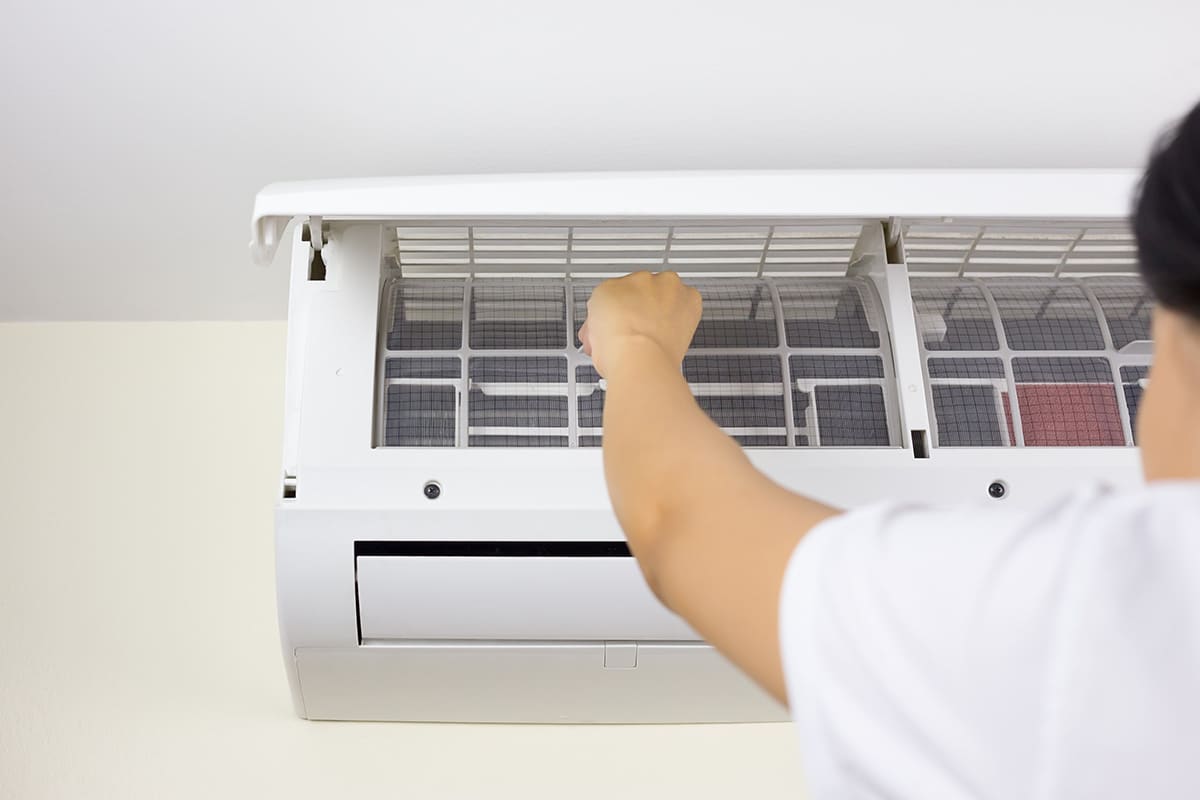Heating and cooling the air in your home or business can create a number of different odors depending on the technology and materials used. Some of these odors aren’t bothersome and may be enjoyable – such as the smoky scent of a wood stove in the winter. Some may be annoying, while others can be deadly.
Here are some of the smells you may notice coming from your heating and cooling system, what they mean, and when to call your HVAC provider right away.

A Musty Odor
The most common odor that home and business owners notice coming from their heaters or air conditioners is the smell of must or mildew. This scent usually originates from window air conditioners and ductless HVAC units that haven’t been adequately cleaned or serviced.
Mold grows on the internal structures of the unit over time, and the more mold and mildew that is present, the more of these particles are pushed through the air in your space. This significantly reduces your overall air quality and can lead to allergy symptoms, fatigue, and a general feeling of unwellness.
What to Do
You can clean or replace your HVAC system’s filters, but this may not tackle the problem entirely, particularly if mold and mildew has been allowed to accumulate for a long period of time.
Your HVAC provider can help in a variety of ways, such as cleaning your ducts if you have a central heating and AC setup or doing a ductless deep clean if your system is a mini-split.
A Decaying Odor
If you notice a decaying odor, this is likely because a small animal has gotten into your system somewhere and made itself a home. You’re either smelling the animal’s nest, food, and fecal matter, or its decaying body if it has died.
This smell can be extremely unpleasant, but it doesn’t pose too much risk to healthy adults. Individuals with allergies and low immune systems may be at risk from airborne bacteria that originates from the animal’s dwelling within the HVAC system.
What to Do
Contact an HVAC service professional to examine your heating and cooling system, ducts, and other structures for signs of animal habitation. Your HVAC team can safely remove nests, feces, and decaying animals from your system without potentially releasing more odor and allergens into your air.
The Odor of Sewage
The odor of sewage or excrement coming from your HVAC system is usually very unexpected, and it’s something you want to address right away. This is not only because the smell of sewage circulating your home or business is unpleasant, but also because it poses a significant health hazard.
The problem in these cases is most likely an issue with your sewer line, where it has become damaged and may have backed up into your basement and subsequently, your HVAC system.
What to Do
If you notice the odor of sewage in your home or office, this is caused by methane gas, which is toxic to both humans and pets. Leave the space immediately and contact both a plumber and your HVAC company.
The plumber will be able to repair a broken sewer line while an HVAC tech will be able to clean your heating and cooling system, replace components as needed, and ensure your system is ready to service your home again.
A Burning Electrical Odor
A burning electrical odor is another smell that requires you to act right away. Your HVAC system contains a number of electrical components and a malfunction with any one of them could result in an electrical fire.
You should be familiar with what to do in the event that a fire breaks out in your home or office; Ready.gov provides detailed information on how to prepare for a fire and how to respond to it as quickly and safely as possible.
What to Do
If there’s no active fire, turn off your HVAC system entirely. Exit your home or business and contact your HVAC technician; they may ask you to check if the electrical burning smell seems to be coming from your furnace or your condenser unit.
Your HVAC tech will thoroughly inspect your system inside and out to determine if it’s the source of the electrical burning smell and if so, will make the necessary repairs.
The Odor of Rotten Eggs
The smell of rotten eggs is particularly awful, but it’s also one of the most important odors you should pay attention to. This smell is caused by sulfur, a pungent ingredient added to natural gas that usually doesn’t have any odor at all. Combining an unpleasant scent with normally odorless natural gas makes it easier to identify possible leaks.
If you notice the odor of sulfur or rotten eggs in your home or business, your heating and air conditioning system may have a natural gas leak and it’s crucial that you act immediately regardless of the time of day or night.
What to Do
The first thing you should do is quickly open your windows and doors and then exit your home or office. Make sure all people and pets are out of the space.
Do as much as you can to avoid breathing the air inside the closed space and do not light anything. Don’t light a candle, a cigarette, or introduce a flame or spark into the environment in any way – it could result in an explosion. Contact your natural gas and HVAC providers right away.
N.E.T.R., Inc. Can Help You Address Heating and Cooling Problems Quickly
At N.E.T.R., Inc., we have been providing reliable heating and cooling services for residents of Boston and surrounding areas since 1989. Contact us today for a consultation to discuss the HVAC needs of your home or business.


Benicia says:
Every time I turn on the heater in the house I get a strong smell of dog poop we’ve purchased this house two years ago and it has happened to me both winters my husband has a weak nose and doesn’t notice it and I’m am pregnant and very sensitive to smell idk what to do
N.E.T.R. says:
We strongly recommend contacting your local HVAC company directly, rather than a blog post comment. The smell could be a sign of something more seriously wrong with your heating system. A full diagnostic would be needed to determine the extent of the issue.